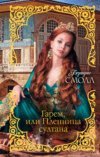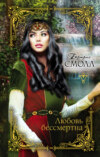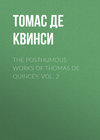Kitobni o'qish: «Note Book of an English Opium-Eater»
THREE MEMORABLE MURDERS
A SEQUEL TO 'MURDER CONSIDERED AS ONE OF THE FINE ARTS.' 1
[1854.]
It is impossible to conciliate readers of so saturnine and gloomy a class, that they cannot enter with genial sympathy into any gaiety whatever, but, least of all, when the gaiety trespasses a little into the province of the extravagant. In such a case, not to sympathize is not to understand; and the playfulness, which is not relished, becomes flat and insipid, or absolutely without meaning. Fortunately, after all such churls have withdrawn from my audience in high displeasure, there remains a large majority who are loud in acknowledging the amusement which they have derived from a former paper of mine, 'On Murder considered as one of the Fine Arts;' at the same time proving the sincerity of their praise by one hesitating expression of censure. Repeatedly they have suggested to me, that perhaps the extravagance, though clearly intentional, and forming one element in the general gaiety of the conception, went too far. I am not myself of that opinion; and I beg to remind these friendly censors, that it is amongst the direct purposes and efforts of this bagatelle to graze the brink of horror, and of all that would in actual realization be most repulsive. The very excess of the extravagance, in fact, by suggesting to the reader continually the mere aeriality of the entire speculation, furnishes the surest means of disenchanting him from the horror which might else gather upon his feelings. Let me remind such objectors, once for all, of Dean Swift's proposal for turning to account the supernumerary infants of the three kingdoms, which, in those days, both at Dublin and at London, were provided for in foundling hospitals, by cooking and eating them. This was an extravaganza, though really bolder and more coarsely practical than mine, which did not provoke any reproaches even to a dignitary of the supreme Irish church; its own monstrosity was its excuse; mere extravagance was felt to license and accredit the little jeu d'esprit, precisely as the blank impossibilities of Lilliput, of Laputa, of the Yahoos, &c., had licensed those. If, therefore, any man thinks it worth his while to tilt against so mere a foam-bubble of gaiety as this lecture on the aesthetics of murder, I shelter myself for the moment under the Telamonian shield of the Dean. But, in reality, my own little paper may plead a privileged excuse for its extravagance, such as is altogether wanting to the Dean's. Nobody can pretend, for a moment, on behalf of the Dean, that there is any ordinary and natural tendency in human thoughts, which could ever turn to infants as articles of diet; under any conceivable circumstances, this would be felt as the most aggravated form of cannibalism—cannibalism applying itself to the most defenceless part of the species. But, on the other hand, the tendency to a critical or aesthetic valuation of fires and murders is universal. If you are summoned to the spectacle of a great fire, undoubtedly the first impulse is—to assist in putting it out. But that field of exertion is very limited, and is soon filled by regular professional people, trained and equipped for the service. In the case of a fire which is operating upon private property, pity for a neighbor's calamity checks us at first in treating the affair as a scenic spectacle. But perhaps the fire may be confined to public buildings. And in any case, after we have paid our tribute of regret to the affair, considered as a calamity, inevitably, and without restraint, we go on to consider it as a stage spectacle. Exclamations of—How grand! How magnificent! arise in a sort of rapture from the crowd. For instance, when Drury Lane was burned down in the first decennium of this century, the falling in of the roof was signalized by a mimic suicide of the protecting Apollo that surmounted and crested the centre of this roof. The god was stationary with his lyre, and seemed looking down upon the fiery ruins that were so rapidly approaching him. Suddenly the supporting timbers below him gave way; a convulsive heave of the billowing flames seemed for a moment to raise the statue; and then, as if on some impulse of despair, the presiding deity appeared not to fall, but to throw himself into the fiery deluge, for he went down head foremost; and in all respects, the descent had the air of a voluntary act. What followed? From every one of the bridges over the river, and from other open areas which commanded the spectacle, there arose a sustained uproar of admiration and sympathy. Some few years before this event, a prodigious fire occurred at Liverpool; the Goree, a vast pile of warehouses close to one of the docks, was burned to the ground. The huge edifice, eight or nine stories high, and laden with most combustible goods, many thousand bales of cotton, wheat and oats in thousands of quarters, tar, turpentine, rum, gunpowder, &c., continued through many hours of darkness to feed this tremendous fire. To aggravate the calamity, it blew a regular gale of wind; luckily for the shipping, it blew inland, that is, to the east; and all the way down to Warrington, eighteen miles distant to the eastward, the whole air was illuminated by flakes of cotton, often saturated with rum, and by what seemed absolute worlds of blazing sparks, that lighted up all the upper chambers of the air. All the cattle lying abroad in the fields through a breadth of eighteen miles, were thrown into terror and agitation. Men, of course, read in this hurrying overhead of scintillating and blazing vortices, the annunciation of some gigantic calamity going on in Liverpool; and the lamentation on that account was universal. But that mood of public sympathy did not at all interfere to suppress or even to check the momentary bursts of rapturous admiration, as this arrowy sleet of many-colored fire rode on the wings of hurricane, alternately through open depths of air, or through dark clouds overhead.
Precisely the same treatment is applied to murders. After the first tribute of sorrow to those who have perished, but, at all events, after the personal interests have been tranquillized by time, inevitably the scenical features (what aesthetically may be called the comparative advantages) of the several murders are reviewed and valued. One murder is compared with another; and the circumstances of superiority, as, for example, in the incidence and effects of surprise, of mystery, &c., are collated and appraised. I, therefore, for my extravagance, claim an inevitable and perpetual ground in the spontaneous tendencies of the human mind when left to itself. But no one will pretend that any corresponding plea can be advanced on behalf of Swift.
In this important distinction between myself and the Dean, lies one reason which prompted the present writing. A second purpose of this paper is, to make the reader acquainted circumstantially with three memorable cases of murder, which long ago the voice of amateurs has crowned with laurel, but especially with the two earliest of the three, viz., the immortal Williams' murders of 1812. The act and the actor are each separately in the highest degree interesting; and, as forty-two years have elapsed since 1812, it cannot be supposed that either is known circumstantially to the men of the current generation.
Never, throughout the annals of universal Christendom, has there indeed been any act of one solitary insulated individual, armed with power so appalling over the hearts of men, as that exterminating murder, by which, during the winter of 1812, John Williams in one hour, smote two houses with emptiness, exterminated all but two entire households, and asserted his own supremacy above all the children of Cain. It would be absolutely impossible adequately to describe the frenzy of feelings which, throughout the next fortnight, mastered the popular heart; the mere delirium of indignant horror in some, the mere delirium of panic in others. For twelve succeeding days, under some groundless notion that the unknown murderer had quitted London, the panic which had convulsed the mighty metropolis diffused itself all over the island. I was myself at that time nearly three hundred miles from London; but there, and everywhere, the panic was indescribable. One lady, my next neighbor, whom personally I knew, living at the moment, during the absence of her husband, with a few servants in a very solitary house, never rested until she had placed eighteen doors (so she told me, and, indeed, satisfied me by ocular proof), each secured by ponderous bolts, and bars, and chains, between her own bedroom and any intruder of human build. To reach her, even in her drawing-room, was like going, as a flag of truce, into a beleaguered fortress; at every sixth step one was stopped by a sort of portcullis. The panic was not confined to the rich; women in the humblest ranks more than once died upon the spot, from the shock attending some suspicious attempts at intrusion upon the part of vagrants, meditating probably nothing worse than a robbery, but whom the poor women, misled by the London newspapers, had fancied to be the dreadful London murderer. Meantime, this solitary artist, that rested in the centre of London, self-supported by his own conscious grandeur, as a domestic Attila, or 'scourge of God;' this man, that walked in darkness, and relied upon murder (as afterwards transpired) for bread, for clothes, for promotion in life, was silently preparing an effectual answer to the public journals; and on the twelfth day after his inaugural murder, he advertised his presence in London, and published to all men the absurdity of ascribing to him any ruralizing propensities, by striking a second blow, and accomplishing a second family extermination. Somewhat lightened was the provincial panic by this proof that the murderer had not condescended to sneak into the country, or to abandon for a moment, under any motive of caution or fear, the great metropolitan castra stativa of gigantic crime, seated for ever on the Thames. In fact, the great artist disdained a provincial reputation; and he must have felt, as a case of ludicrous disproportion, the contrast between a country town or village, on the one hand, and, on the other, a work more lasting than brass—a [Greek: chtaema es aei]—a murder such in quality as any murder that he would condescend to own for a work turned out from his own studio.
Coleridge, whom I saw some months after these terrific murders, told me, that, for his part, though at the time resident in London, he had not shared in the prevailing panic; him they effected only as a philosopher, and threw him into a profound reverie upon the tremendous power which is laid open in a moment to any man who can reconcile himself to the abjuration of all conscientious restraints, if, at the same time, thoroughly without fear. Not sharing in the public panic, however, Coleridge did not consider that panic at all unreasonable; for, as he said most truly in that vast metropolis there are many thousands of households, composed exclusively of women and children; many other thousands there are who necessarily confide their safety, in the long evenings, to the discretion of a young servant girl; and if she suffers herself to be beguiled by the pretence of a message from her mother, sister, or sweetheart, into opening the door, there, in one second of time, goes to wreck the security of the house. However, at that time, and for many months afterwards, the practice of steadily putting the chain upon the door before it was opened prevailed generally, and for a long time served as a record of that deep impression left upon London by Mr. Williams. Southey, I may add, entered deeply into the public feeling on this occasion, and said to me, within a week or two of the first murder, that it was a private event of that order which rose to the dignity of a national event. 2 But now, having prepared the reader to appreciate on its true scale this dreadful tissue of murder (which as a record belonging to an era that is now left forty-two years behind us, not one person in four of this generation can be expected to know correctly), let me pass to the circumstantial details of the affair.
Yet, first of all, one word as to the local scene of the murders. Ratcliffe Highway is a public thoroughfare in a most chaotic quarter of eastern or nautical London; and at this time (viz., in 1812), when no adequate police existed except the detective police of Bow Street, admirable for its own peculiar purposes, but utterly incommensurate to the general service of the capital, it was a most dangerous quarter. Every third man at the least might be set down as a foreigner. Lascars, Chinese, Moors, Negroes, were met at every step. And apart from the manifold ruffianism, shrouded impenetrably under the mixed hats and turbans of men whose past was untraceable to any European eye, it is well known that the navy (especially, in time of war, the commercial navy) of Christendom is the sure receptacle of all the murderers and ruffians whose crimes have given them a motive for withdrawing themselves for a season from the public eye. It is true, that few of this class are qualified to act as 'able' seamen: but at all times, and especially during war, only a small proportion (or nucleus) of each ship's company consists of such men: the large majority being mere untutored landsmen. John Williams, however, who had been occasionally rated as a seaman on board of various Indiamen, &c., was probably a very accomplished seaman. Pretty generally, in fact, he was a ready and adroit man, fertile in resources under all sudden difficulties, and most flexibly adapting himself to all varieties of social life. Williams was a man of middle stature (five feet seven and a-half, to five feet eight inches high), slenderly built, rather thin, but wiry, tolerably muscular, and clear of all superfluous flesh. A lady, who saw him under examination (I think at the Thames Police Office), assured me that his hair was of the most extraordinary and vivid color, viz., bright yellow, something between an orange and lemon color. Williams had been in India; chiefly in Bengal and Madras: but he had also been upon the Indus. Now, it is notorious that, in the Punjaub, horses of a high caste are often painted—crimson, blue, green, purple; and it struck me that Williams might, for some casual purpose of disguise, have taken a hint from this practice of Scinde and Lahore, so that the color might not have been natural. In other respects, his appearance was natural enough; and, judging by a plaster cast of him, which I purchased in London, I should say mean, as regarded his facial structure. One fact, however, was striking, and fell in with the impression of his natural tiger character, that his face wore at all times a bloodless ghastly pallor. 'You might imagine,' said my informant, 'that in his veins circulated not red life- blood, such as could kindle into the blush of shame, of wrath, of pity— but a green sap that welled from no human heart.' His eyes seemed frozen and glazed, as if their light were all converged upon some victim lurking in the far background. So far his appearance might have repelled; but, on the other hand, the concurrent testimony of many witnesses, and also the silent testimony of facts, showed that the oiliness and snaky insinuation of his demeanor counteracted the repulsiveness of his ghastly face, and amongst inexperienced young women won for him a very favorable reception. In particular, one gentle-mannered girl, whom Williams had undoubtedly designed to murder, gave in evidence—that once, when sitting alone with her, he had said, 'Now, Miss R., supposing that I should appear about midnight at your bedside, armed with a carving knife, what would you say?' To which the confiding girl had, replied, 'Oh, Mr. Williams, if it was anybody else, I should be frightened. But, as soon as I heard your voice, I should be tranquil.' Poor girl! had this outline sketch of Mr. Williams been filled in and realized, she would have seen something in the corpse-like face, and heard something in the sinister voice, that would have unsettled her tranquillity for ever. But nothing short of such dreadful experiences could avail to unmask Mr. John Williams.
Into this perilous region it was that, on a Saturday night in December, Mr. Williams, whom we suppose to have long since made his coup d'essai, forced his way through the crowded streets, bound on business. To say, was to do. And this night he had said to himself secretly, that he would execute a design which he had already sketched, and which, when finished, was destined on the following day to strike consternation into 'all that mighty heart' of London, from centre to circumference. It was afterwards remembered that he had quitted his lodgings on this dark errand about eleven o'clock P. M.; not that he meant to begin so soon: but he needed to reconnoitre. He carried his tools closely buttoned up under his loose roomy coat. It was in harmony with the general subtlety of his character, and his polished hatred of brutality, that by universal agreement his manners were distinguished for exquisite suavity: the tiger's heart was masked by the most insinuating and snaky refinement. All his acquaintances afterwards described his dissimulation as so ready and so perfect, that if, in making his way through the streets, always so crowded on a Saturday night in neighborhoods so poor, he had accidentally jostled any person, he would (as they were all satisfied) have stopped to offer the most gentlemanly apologies: with his devilish heart brooding over the most hellish of purposes, he would yet have paused to express a benign hope that the huge mallet, buttoned up under his elegant surtout, with a view to the little business that awaited him about ninety minutes further on, had not inflicted any pain on the stranger with whom he had come into collision. Titian, I believe, but certainly Rubens, and perhaps Vandyke, made it a rule never to practise his art but in full dress—point ruffles, bag wig, and diamond-hilted sword; and Mr. Williams, there is reason to believe, when he went out for a grand compound massacre (in another sense, one might have applied to it the Oxford phrase of going out as Grand Compounder), always assumed black silk stockings and pumps; nor would he on any account have degraded his position as an artist by wearing a morning gown. In his second great performance, it was particularly noticed and recorded by the one sole trembling man, who under killing agonies of fear was compelled (as the reader will find) from a secret stand to become the solitary spectator of his atrocities, that Mr. Williams wore a long blue frock, of the very finest cloth, and richly lined with silk. Amongst the anecdotes which circulated about him, it was also said at the time, that Mr. Williams employed the first of dentists, and also the first of chiropodists. On no account would he patronize any second-rate skill. And beyond a doubt, in that perilous little branch of business which was practised by himself, he might be regarded as the most aristocratic and fastidious of artists.
But who meantime was the victim, to whose abode he was hurrying? For surely he never could be so indiscreet as to be sailing about on a roving cruise in search of some chance person to murder? Oh, no: he had suited himself with a victim some time before, viz., an old and very intimate friend. For he seems to have laid it down as a maxim—that the best person to murder was a friend; and, in default of a friend, which is an article one cannot always command, an acquaintance: because, in either case, on first approaching his subject, suspicion would be disarmed: whereas a stranger might take alarm, and find in the very countenance of his murderer elect a warning summons to place himself on guard. However, in the present ease, his destined victim was supposed to unite both characters: originally he had been a friend; but subsequently, on good cause arising, he had become an enemy. Or more probably, as others said, the feelings had long since languished which gave life to either relation of friendship or of enmity. Marr was the name of that unhappy man, who (whether in the character of friend or enemy) had been selected for the subject of this present Saturday night's performance. And the story current at that time about the connection between Williams and Marr, having (whether true or not true) never been contradicted upon authority, was, that they sailed in the same Indiaman to Calcutta; that they had quarrelled when at sea; but another version of the story said—no: they had quarrelled after returning from sea; and the subject of their quarrel was Mrs. Marr, a very pretty young woman, for whose favor they had been rival candidates, and at one time with most bitter enmity towards each other. Some circumstances give a color of probability to this story. Otherwise it has sometimes happened, on occasion of a murder not sufficiently accounted for, that, from pure goodness of heart intolerant of a mere sordid motive for a striking murder, some person has forged, and the public has accredited, a story representing the murderer as having moved under some loftier excitement: and in this case the public, too much shocked at the idea of Williams having on the single motive of gain consummated so complex a tragedy, welcomed the tale which represented him as governed by deadly malice, growing out of the more impassioned and noble rivalry for the favor of a woman. The case remains in some degree doubtful; but, certainly, the probability is, that Mrs. Marr had been the true cause, the causa teterrima, of the feud between the men. Meantime, the minutes are numbered, the sands of the hour-glass are running out, that measure the duration of this feud upon earth. This night it shall cease. To-morrow is the day which in England they call Sunday, which in Scotland they call by the Judaic name of 'Sabbath.' To both nations, under different names, the day has the same functions; to both it is a day of rest. For thee also, Marr, it shall be a day of rest; so is it written; thou, too, young Marr, shalt find rest—thou, and thy household, and the stranger that is within thy gates. But that rest must be in the world which lies beyond the grave. On this side the grave ye have all slept your final sleep.
The night was one of exceeding darkness; and in this humble quarter of London, whatever the night happened to be, light or dark, quiet or stormy, all shops were kept open on Saturday nights until twelve o'clock, at the least, and many for half an hour longer. There was no rigorous and pedantic Jewish superstition about the exact limits of Sunday. At the very worst, the Sunday stretched over from one o'clock, A. M. of one day, up to eight o'clock A. M. of the next, making a clear circuit of thirty-one hours. This, surely, was long enough. Marr, on this particular Saturday night, would be content if it were even shorter, provided it would come more quickly, for he has been toiling through sixteen hours behind his counter. Marr's position in life was this: he kept a little hosier's shop, and had invested in his stock and the fittings of his shop about 180 pounds. Like all men engaged in trade, he suffered some anxieties. He was a new beginner; but, already, bad debts had alarmed him; and bills were coming to maturity that were not likely to be met by commensurate sales. Yet, constitutionally, he was a sanguine hoper. At this time he was a stout, fresh-colored young man of twenty-seven; in some slight degree uneasy from his commercial prospects, but still cheerful, and anticipating—(how vainly!)—that for this night, and the next night, at least, he will rest his wearied head and his cares upon the faithful bosom of his sweet lovely young wife. The household of Marr, consisting of five persons, is as follows: First, there is himself, who, if he should happen to be ruined, in a limited commercial sense, has energy enough to jump up again, like a pyramid of fire, and soar high above ruin many times repeated. Yes, poor Marr, so it might be, if thou wert left to thy native energies unmolested; but even now there stands on the other side of the street one born of hell, who puts his peremptory negative on all these flattering prospects. Second in the list of his household, stands his pretty and amiable wife, who is happy after the fashion of youthful wives, for she is only twenty-two, and anxious (if at all) only on account of her darling infant. For, thirdly, there is in a cradle, not quite nine feet below the street, viz., in a warm, cosy kitchen, and rocked at intervals by the young mother, a baby eight months old. Nineteen months have Marr and herself been married; and this is their first-born child. Grieve not for this child, that it must keep the deep rest of Sunday in some other world; for wherefore should an orphan, steeped to the lips in poverty, when once bereaved of father and mother, linger upon an alien and murderous earth? Fourthly, there is a stoutish boy, an apprentice, say thirteen years old; a Devonshire boy, with handsome features, such as most Devonshire youths have; 3 satisfied with his place; not overworked; treated kindly, and aware that he was treated kindly, by his master and mistress. Fifthly, and lastly, bringing up the rear of this quiet household, is a servant girl, a grown-up young woman; and she, being particularly kind-hearted, occupied (as often happens in families of humble pretensions as to rank) a sort of sisterly place in her relation to her mistress. A great democratic change is at this very time (1854), and has been for twenty years, passing over British society. Multitudes of persons are becoming ashamed of saying, 'my master,' or 'my mistress:' the term now in the slow process of superseding it is, 'my employer.' Now, in the United States, such an expression of democratic hauteur, though disagreeable as a needless proclamation of independence which nobody is disputing, leaves, however, no lasting bad effect. For the domestic 'helps' are pretty generally in a state of transition so sure and so rapid to the headship of domestic establishments belonging to themselves, that in effect they are but ignoring, for the present moment, a relation which would at any rate dissolve itself in a year or two. But in England, where no such resources exist of everlasting surplus lands, the tendency of the change is painful. It carries with it a sullen and a coarse expression of immunity from a yoke which was in any case a light one, and often a benign one. In some other place I will illustrate my meaning. Here, apparently, in Mrs. Marr's service, the principle concerned illustrated itself practically. Mary, the female servant, felt a sincere and unaffected respect for a mistress whom she saw so steadily occupied with her domestic duties, and who, though so young, and invested with some slight authority, never exerted it capriciously, or even showed it at all conspiciously. According to the testimony of all the neighbors, she treated her mistress with a shade of unobtrusive respect on the one hand, and yet was eager to relieve her, whenever that was possible, from the weight of her maternal duties, with the cheerful voluntary service of a sister.
To this young woman it was, that, suddenly, within three or four minutes of midnight, Marr called aloud from the head of the stairs—directing her to go out and purchase some oysters for the family supper. Upon what slender accidents hang oftentimes solemn lifelong results! Marr occupied in the concerns of his shop, Mrs. Marr occupied with some little ailment and restlessness of her baby, had both forgotten the affair of supper; the time was now narrowing every moment, as regarded any variety of choice; and oysters were perhaps ordered as the likeliest article to be had at all, after twelve o'clock should have struck. And yet, upon this trivial circumstance depended Mary's life. Had she been sent abroad for supper at the ordinary time of ten or eleven o'clock, it is almost certain that she, the solitary member of the household who escaped from the exterminating tragedy, would not have escaped; too surely she would have shared the general fate. It had now become necessary to be quick. Hastily, therefore, receiving money from Marr with a basket in her hand, but unbonneted, Mary tripped out of the shop. It became afterwards, on recollection, a heart-chilling remembrance to herself—that, precisely as she emerged from the shop-door, she noticed, on the opposite side of the street, by the light of the lamps, a man's figure; stationary at the instant, but in the next instant slowly moving. This was Williams; as a little incident, either just before or just after (at present it is impossible to say which), sufficiently proved. Now, when one considers the inevitable hurry and trepidation of Mary under the circumstances stated, time barely sufficing for any chance of executing her errand, it becomes evident that she must have connected some deep feeling of mysterious uneasiness with the movements of this unknown man; else, assuredly, she would not have found her attention disposable for such a case. Thus far, she herself threw some little light upon what it might be that, semi- consciously, was then passing through her mind; she said, that, notwithstanding the darkness, which would not permit her to trace the man's features, or to ascertain the exact direction of his eyes, it yet struck her, that from his carriage when in motion, and from the apparent inclination of his person, he must be looking at No. 29.
The little incident which I have alluded to as confirming Mary's belief was, that, at some period not very far from midnight, the watchman had specially noticed this stranger; he had observed him continually peeping into the window of Marr's shop; and had thought this act, connected with the man's appearance, so suspicious, that he stepped into Marr's shop, and communicated what he had seen. This fact he afterwards stated before the magistrates; and he added, that subsequently, viz., a few minutes after twelve (eight or ten minutes, probably, after the departure of Mary), he (the watchman), when re-entering upon his ordinary half-hourly beat, was requested by Marr to assist him in closing the shutters. Here they had a final communication with each other; and the watchman mentioned to Marr that the mysterious stranger had now apparently taken himself off; for that he had not been visible since the first communication made to Marr by the watchman. There is little doubt that Williams had observed the watchman's visit to Marr, and had thus had his attention seasonably drawn to the indiscretion of his own demeanor; so that the warning, given unavailingly to Marr, had been turned to account by Williams. There can be still less doubt, that the bloodhound had commenced his work within one minute of the watchman's assisting Marr to put up his shutters. And on the following consideration:—that which prevented Williams from commencing even earlier, was the exposure of the shop's whole interior to the gaze of street passengers. It was indispensable that the shutters should be accurately closed before Williams could safely get to work. But, as soon as ever this preliminary precaution had been completed, once having secured that concealment from the public eye it then became of still greater importance not to lose a moment by delay, than previously it had been not to hazard any thing by precipitance. For all depended upon going in before Marr should have locked the door. On any other mode of effecting an entrance (as, for instance, by waiting for the return of Mary, and making his entrance simultaneously with her), it will be seen that Williams must have forfeited that particular advantage which mute facts, when read into their true construction, will soon show the reader that he must have employed. Williams waited, of necessity, for the sound of the watchman's retreating steps; waited, perhaps, for thirty seconds; but when that danger was past, the next danger was, lest Marr should lock the door; one turn of the key, and the murderer would have been locked out. In, therefore, he bolted, and by a dexterous movement of his left hand, no doubt, turned the key, without letting Marr perceive this fatal stratagem. It is really wonderful and most interesting to pursue the successive steps of this monster, and to notice the absolute certainty with which the silent hieroglyphics of the case betray to us the whole process and movements of the bloody drama, not less surely and fully than if we had been ourselves hidden in Marr's shop, or had looked down from the heavens of mercy upon this hell-kite, that knew not what mercy meant. That he had concealed from Marr his trick, secret and rapid, upon the lock, is evident; because else, Marr would instantly have taken the alarm, especially after what the watchman had communicated. But it will soon be seen that Marr had not been alarmed. In reality, towards the full success of Williams, it was important, in the last degree, to intercept and forestall any yell or shout of agony from Marr. Such an outcry, and in a situation so slenderly fenced off from the street, viz., by walls the very thinnest, makes itself heard outside pretty nearly as well as if it were uttered in the street. Such an outcry it was indispensable to stifle. It was stifled; and the reader will soon understand how. Meantime, at this point, let us leave the murderer alone with his victims. For fifty minutes let him work his pleasure. The front-door, as we know, is now fastened against all help. Help there is none. Let us, therefore, in vision, attach ourselves to Mary; and, when all is over, let us come back with her, again raise the curtain, and read the dreadful record of all that has passed in her absence.



















